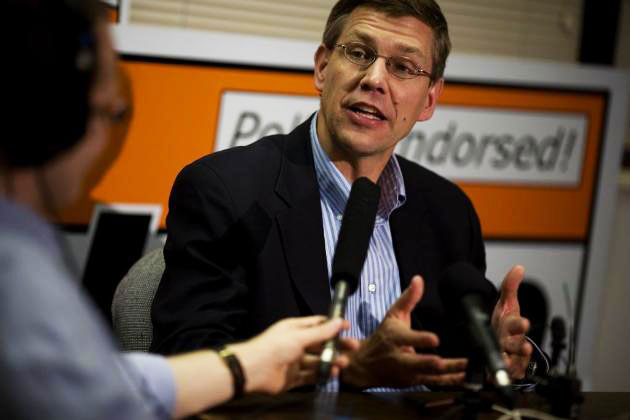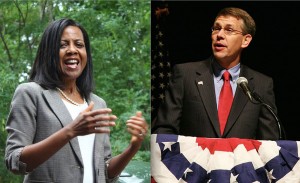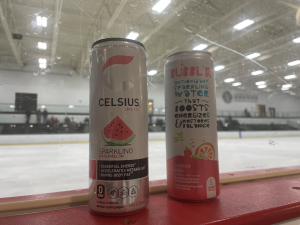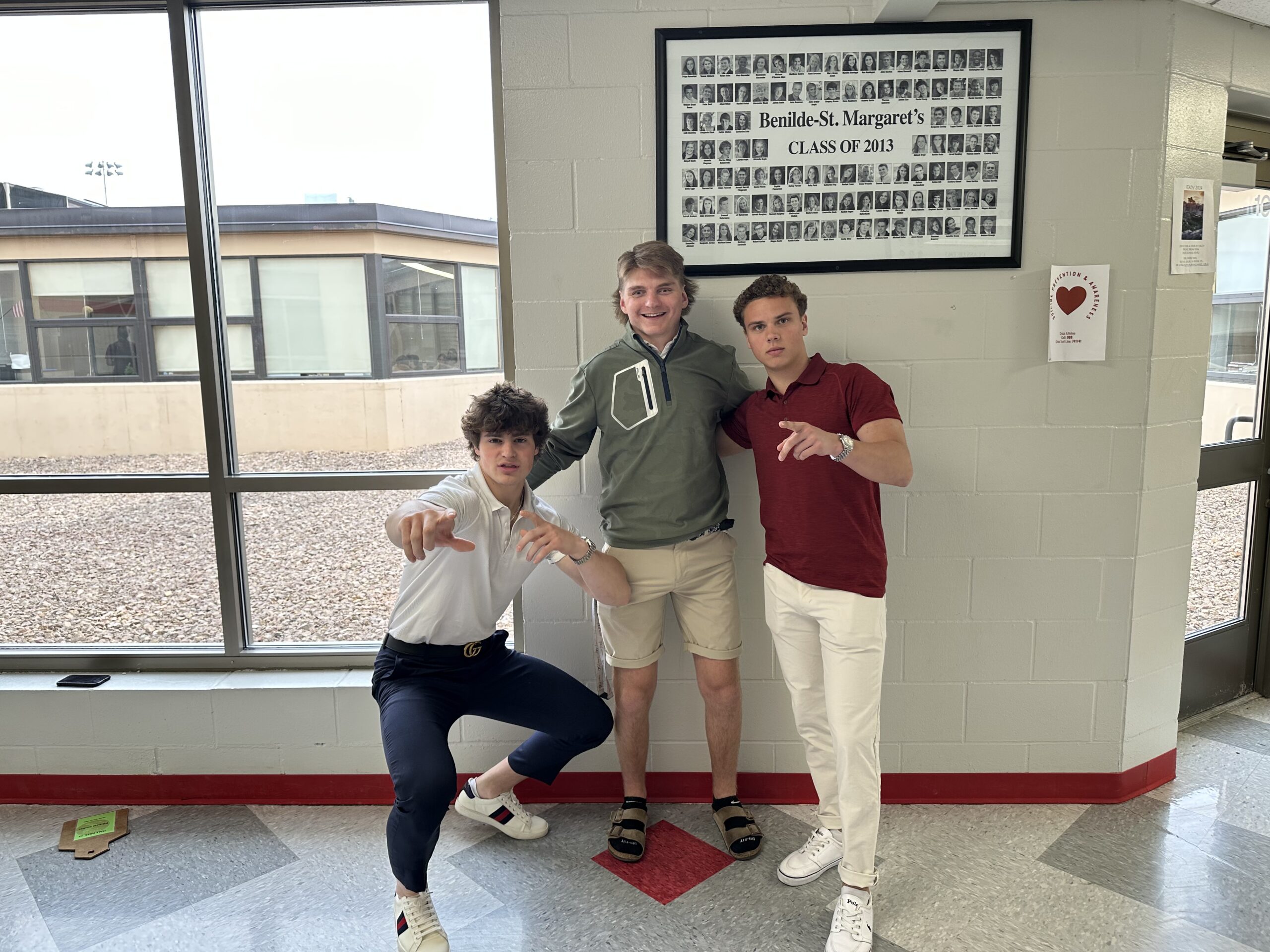Paulsen seeks a fourth term in the third congressional district
Courtesy of Friends of Erik Paulsen
Erik Paulsen, at age 49 is one of the youngest members of Congress.
October 10, 2014
I am a typical high school student who sits on my couch, while half-mindedly doing Spanish homework, with the TV droning in the background.
“Mike McFadden doesn’t care about Minnesota. His interests are only with big corporations,” I hear blaring. As I’m about to dismiss it as another stupid political ad, I realize something, I’ll be able to vote in this election, and I know nothing.
After recalling a plethora of lawn signs around my neighborhood and a quick google search, I deduced that my representative in Washington D.C. is Rep. Erik Paulsen (R) from Congressional District 3, but I was completely clueless as to his views until I began research for this story.
Having served three terms in the US House of Representatives after being elected in 2008, Paulsen, who is up for reelection, states that he is dedicated to “bringing bipartisan solutions, and results-driven leadership to Washington,” Paulsen said.
A 1987 graduate of St. Olaf College in Northfield, Minnesota, Paulsen majored in Mathematics, setting him apart from many other Representatives in Washington. Paulsen also sets himself apart with his time in the private sector, working as an analyst for Target.
“It’s really important for elected politicians to have real world experience. [Most politicians] do not know what it means to run a business or sign a paycheck,” Paulsen said. “It’s healthy to have a balance of folks from different walks of life. I’ve got an appreciation for what these policies that are proposed actually mean, whether it’s going to help or hurt the economy.”
Beginning his political career early, Paulsen worked as an intern for Republican Senator Rudy Boschwitz in 1989 and worked closely with Representative Ramstad as a staffer until he ran for the Minnesota House of Representatives himself in 1994. “I wanted to become involved in politics because I saw the opportunity to create change and make things happen. I wanted to make a difference.” Paulsen said.
First elected following the retirement of Rep. Jim Ramstad, whom Paulsen worked for as a staffer in the early 90’s. Paulsen served in the Minnesota House of Representatives from 2003-2007. “I noticed that there are a lot of big issues on our country’s horizon, and I wanted to make a difference. I wanted to make sure that my daughters have the same opportunities that I did,” Paulsen said.
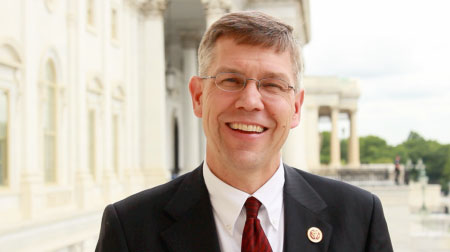
Being able to bridge both sides of the aisle so you can actually get some things done. Being results-oriented is the thing I’m most proud of and hope others will be the same.
— Erik Paulsen
One of Paulsen’s goals throughout his political career has been to break down partisan gridlock and inefficiency, and institute a results-oriented approach to policymaking. He has worked numerous times in the past on bipartisan bills, most notably, the Safe Harbors Bill, working to stop sex-trafficking in Minnesota, and the repeal of the medical device tax.
“I’m proud of being able to get things done in a politically charged environment: passing the sex trafficking bill and the repeal of the medical device tax that was harmful to Minnesota,” Paulsen said. “Being able to bridge both sides of the aisle so you can actually get some things done. Being results-oriented is the thing I’m most proud of and hope others will be the same.”
The bipartisan work done in Washington by Paulsen has not gone unnoticed. Paulsen’s biggest supporters continue to support him as a result of the work he’s been able to accomplish. “Most of Washington spends too much time voting along party lines––[Paulsen] isn’t afraid to go against that. He is a practical politician in a radical time dedicated to making things happen,” long time supporter and contributor of Paulsen, Tom Stauber said.
As an advocate for health care reform, Paulsen firmly believes in working to make healthcare more accessible for all Americans. Paulsen not only voted against the Affordable Care Act, more commonly known as “Obamacare,” in 2012, but supported the House’s decision to sue President Obama over the issue.
“[The Affordable Care Act] did not address one of the fundamental problems of healthcare which is the rising cost. The premiums continue to go up for individuals families and small businesses. Promises that were made about $2500, lowering your premium, being able to keep your doctor were all fiction. Unfortunately that’s hurt a lot of people,” Paulsen said.
Paulsen has pledged to solve the issues with the current system related to competition, and lower costs through prevention instead of cutting benefits. “The answer is that is has to be more patient-centered and consumer-oriented so that we’re addressing the cost side of the equation,” Paulsen said. “We need to implement more malpractice reform, competition between companies and make it more transparent.”
Another issue Paulsen has given close attention to is fiscal responsibility. With the national debt continually rising, citizens are demanding budget reform and control in Washington.
“Too many in Washington that think the budget deficit doesn’t matter. We’ve doubled the national debt in five years, and we’re set to triple it in ten,” Paulsen said. “[This] essentially means that [young people] are going to owe and pay back that money to countries like China. It’s not smart, and certainly it’s not putting us in a good position to compete with the rest of the world.”
With regard to solving the budget deficit, Paulsen plans to prioritize spending instead of completely cutting programs. “We need to stop set programs and not allow programs to get an automatic increase every year. They should have to come back and show what they’ve accomplished before being renewed,” Paulsen said.
According to Paulsen, growing and more complex taxes and regulations continue to harm the small business climate in America, and therefore he is committed to changing the tax code and improving the economy.
“Small businesses are the engine of the economy. We should be doing all we can to ensure they continue to grow because they are two thirds of our economy,” Paulsen said. “We need to do this through regulation and taxation. The tax code needs to be reformed to be fairer and simpler; there are too many special interest loopholes. The tax code should be designed to promote innovation and hard work and achievement.”
Paulsen has been an outspoken advocate for small businesses, working to try and create a productive environment for businesses to grow and prosper. “Small businesses are important to have growth because they’re the largest source of employment in the country. When the taxes on them are heavy it hurts the trickle down that could be possible through growth and development,” Stauber, small business owner, said.
The growing importance of social issues in the past have been detrimental to the historically socially conservative Republican Party, especially among youth voters. The Republican Party’s stance on issues such gay rights and voter registration have hurt their appeal to young people. “Social issues become very divisive because they’re such personal issues,” Paulsen said. “I try and focus my work on issues that will impact all of my constituents like helping small business and creating a better economy.”
Paulsen is targeting younger voters, looking to get them involved in his campaign. “I have always been focused on having younger people participate in the electoral and campaign processes,” Paulsen said. “I’m trying to lead the way in the Republican Party to secure the younger voters and help our party grow.”
Paulsen, 49, is one of the youngest leaders in Washington and is looking to pave the way for a more moderate brand of conservative politics. “I’m one of the younger members in the House of Representatives, and I think the House needs new energy and youngblood and I bring that,” Paulsen said. “Everyone thought my young age was going to be a liability, and it ended up being an asset.”
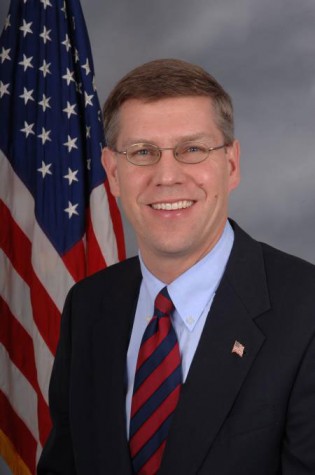
Championing the rights of small businesses, Erik Paulsen hopes to continue to help the private sector.
Running against DFL candidate and scientist Sharon Sund in 2014 will force Paulsen to address his views on climate change and other social issues. Paulsen and other Republicans have been fairly quiet in regard to the issue in the past, and instead, promote views and ideas to improve both the environment and the economy simultaneously. “What’s important is to find policies that conserve the environment and appropriate environmental stewardship,” Paulsen said. “Washington has gone to [entirely] in the other direction which is proposing policies that would further ruin the economy.”
Paulsen plans to introduce new policies that would further the development and implementation of new technology to better the environment. “I’m a big supporter of nuclear energy––energy is one of the largest components of our carbon footprint,” Paulsen said. “I’m also one of the only members of my party to support governmental research to develop renewable technology like solar energy.”
The passing of the Safe Harbor Bill in Minnesota, another issue Paulsen championed, was a breakthrough in sex trafficking legislation. Paulsen was an author of the bill and has passed a similar bill through the US House. “I authored the safe harbor bill and passed it in the house with overwhelming bipartisan support and new we need the senate to act,” Paulsen said. “These are bills that save lives so I have made it an ongoing mission of mine to replicate the successes that have happened in Minnesota.”
Paulsen feels a strong personal and local connection to the issue, which has inspired him to continue his work. “It is important to treat these people as victims not as criminals,” Paulsen said. “There’s no doubt that Minnesota has led the way in sex trafficking legislation; it’s an especially personal issue because of my own daughters and how close to home it is. People don’t realize it’s not only in foreign countries; it happens at the Mall of America and Eden Prairie mall.”
As campaign season continues to thrive, Paulsen is looking to serve his district again in the best way possible. His district had demanded results, and Paulsen has made it his goal to fulfill their wishes.
“I think my constituents represent a good district, and they expect results-oriented leadership, and that’s the approach I’m taking in Congress and working to get things done in a bipartisan manner on issues that are important to them,” Paulsen said.
After countless hours of research and interviewing, I have learned just about everything about Rep. Erik Paulsen. But more importantly, I’ve learned the importance of politics and the influence it has on my life. I no longer dismiss the attack ads or lawn signs, but instead pay attention and understand how–through politics–I could have an impact on my own situation.











































